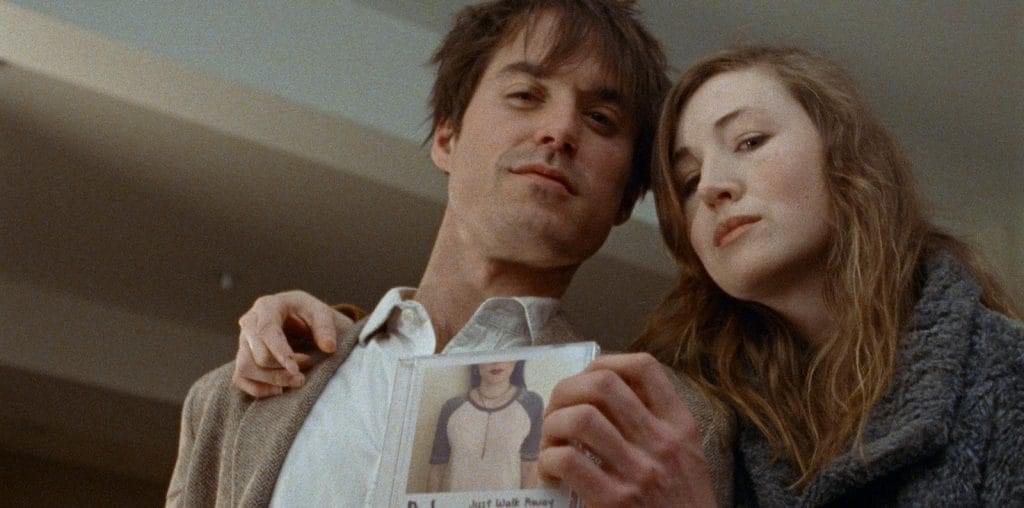
Jack Gattanella’s Green Eyes is a drama told in two timelines. After somewhat reclusive drug-dealer-on-the-side Nic (Thomas Wesson) hooks up with the hard-partying Ingrid (Audrey Lorea), it begins a casual relationship based almost entirely on the physical.
At the same time, the film presents the story of Nic’s previous relationship, an affair with his friend Glenn’s girlfriend Jamie (Dasha Kittredge). Unfortunately, the story of Nic and Jamie ends tragically when Jamie dies in a car wreck, thus leaving Nic in the state of mind and body he’s in when he first hooks up with Ingrid.
I actually watched this film twice. My first time through, I found my initial reaction to be one of unfair dismissal. I did not connect with the film, and didn’t see much positive coming out of my mouth about it. Fearing that my opinion may’ve been tainted by outside influences (was it a particularly bad day, etc), I decided to give it another go.
My second time through was less an experience of outright dismissal, but certain elements of my first impression remained intact. Again, I didn’t find myself engaging too strongly with the film, though it was more clear as to why.
The aspect of the film that was most problematic for me is how it presents the dual storylines of Nic’s relationships. Matter of fact and with little indication that what you’re watching is not happening in the present, the mixing of the two timelines results in a prolonged sense of disorientation about what the narrative is, and who all the people are.
I’m not saying I need the past narrative to be all in black-and-white, or have sparkles around the edges to indicate that it was outside of the present narrative, but some sort of indication would be nice (to be fair, there is a fade here and there, and perhaps that is the indication I was seeking, but it is one I picked up only in the second viewing). Ultimately you figure it out, but is it worth the extended period of confusion to get there; while you’re stumbling with the narrative, how easy is it to engage with the other elements? Something gets shortchanged in the interim.
Beyond that, I found the character of Nic to be emotionally void for most of the film, which gave the moments of emotion that are eventually displayed a disingenuous feel overall. Like, he just seems to be a non-entity, and save for the fact that the film is strongly hinting that the relationship and death of Jamie made a major impact on his life, you wouldn’t really know it just by looking at him, as he seems to be as blank in his life with Jamie as he is with Ingrid.
And that undercuts the Ingrid thread too, as she easily becomes the most appealing aspect of that storyline. While her story is of the candle burning at both ends variety, she will always shine the brightest in the room right up to the point where she burns out into oblivion, her narrative doesn’t transcend the broad strokes because she’s bouncing off of the emotional equivalent of watching drying paint. The contrasts are so extreme that the eye settles in the middle, which is where nothing resides. Thus she becomes a stereotypical cautionary tale, as opposed to a character that could elicit more of a connection.
Which I think paints the picture of the experience I had with Green Eyes. It is a film with a major character who I found hard to connect with, let alone interesting enough to want to follow, and that was wrapped up within dual narratives, that play out within separate timelines, presented as if they are one. So you have a challenge presented by the filmmakers (following the somewhat confusing presentation of the narratives), and the reward being that you may or may not find something interesting or worth connecting with about Nic. It is not motivating.
All that said, however, it doesn’t mean that the film isn’t generally made well, or that there aren’t signs of craftsmanship here. And for as much as I’ve harped on the not-so-unique aspects of the Ingrid character, Audrey Lorea’s portrayal is easily the strongest of this film. I found myself often wishing we were spending more time in her world, as flawed as it was, than returning back to Nic’s.
In the end, you just get the feeling that the film let its narrative ambitions get the better of its ability to engage an audience. Maybe if it committed to one narrative line in a more traditional sense, rather than trying to deliver both at once, it would’ve landed stronger punches. Or maybe the main touchstone at the core of it all, Nic, should’ve just been a stronger character.
Then again, if you look at the film as a visual complement to its sometimes jazz-infused score, the handling of the narrative makes more sense. It doesn’t necessarily make it better, not everyone digs jazz, but you get the attempt, and how the elements involved connect to the ideas behind it all.
This film was submitted for review through our Submission for Review system. If you have a film you’d like us to see, and we aren’t already looking into it on our own, you too can utilize this service.
